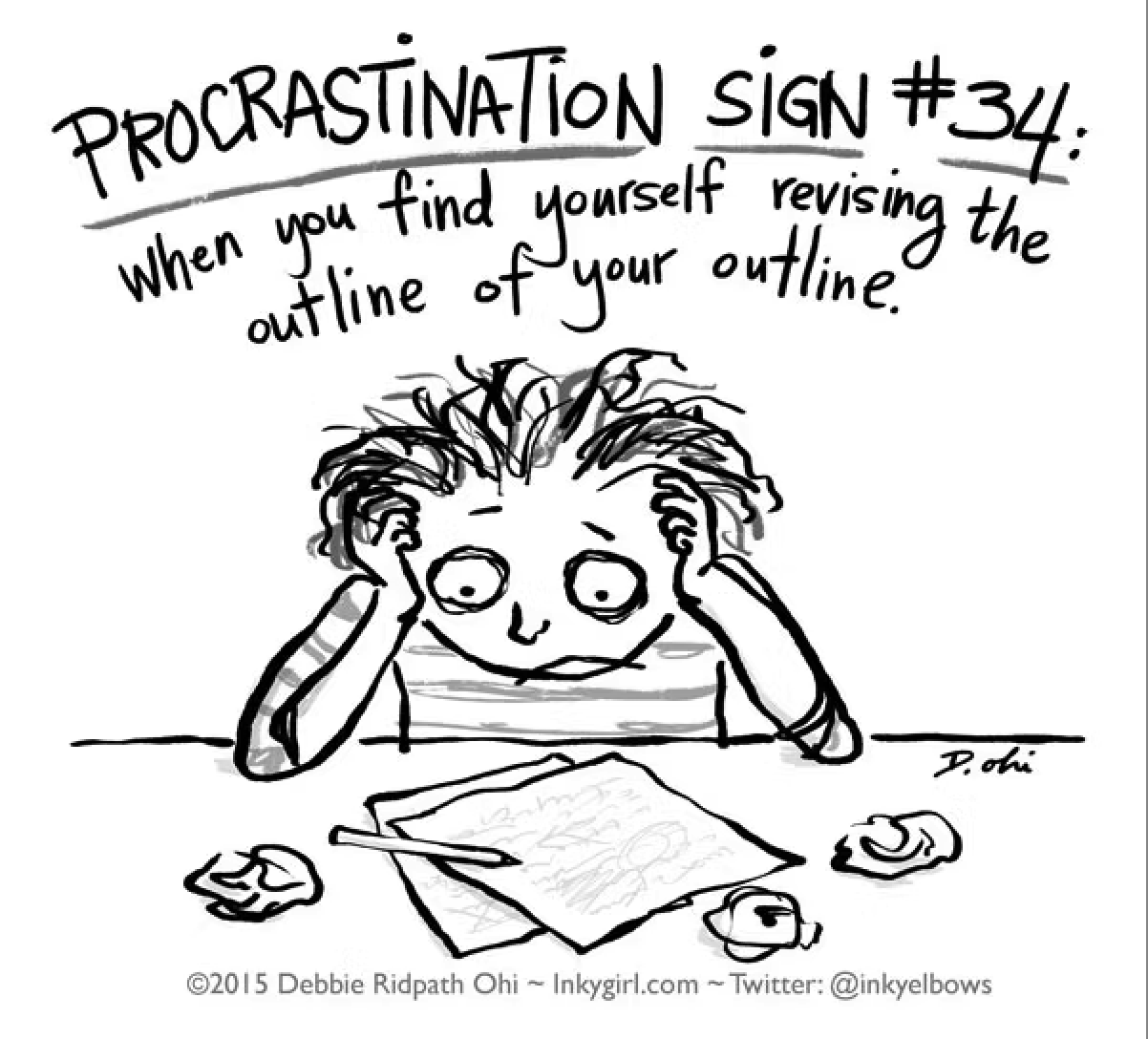the real source of procrastination—and how to deal with it
When I talk to my coaching clients about procrastination, most of them attribute their avoidance of writing to “laziness.”
They think they just need more willpower to choose writing over, say, Netflix or scrolling through Instagram.
But over the years, I’ve become skeptical of the idea that procrastination stems from laziness. I see a lot of evidence that laziness is not, in fact, the root issue for writers. For instance:
I’ve noticed that the writers I work with are far from lazy in other aspects of their lives; in fact, they’re extremely hard workers!
When I talk to writers about their creative projects, it becomes clear that writing is one of their top priorities, their biggest life dream. They really want to put in the work to get to that dream.
I’ve observed that writers will choose even very difficult tasks to avoid writing. Reorganize the kitchen cabinets? Clear out the garage? These extremely tedious, non-lazy tasks often feel much more appealing than writing.
So what’s the real motivator for writers to procrastinate? I believe it’s anxiety.
Writers know that when we sit down to write, we will pretty immediately have to confront insecurities and doubts about our work. The thoughts and feelings that crop up in the first ten minutes of a writing session can be very uncomfortable and sometimes downright painful.
I don’t know where to start. This scene feels pretty weak to me. I thought I could write a book, but now I’m doubting that I can.
No one likes to confront these types of feelings–they’re very uncomfortable! That’s why, in moments like these, cleaning out the garage seems like such a tempting alternative.
So, what can we do about this anxiety that repels us from writing and diverts us to other, less-confronting activities? Here are a few strategies that I’ve found helpful over the years:
Recognize that sitting down to write is an inherently anxiety-producing event.
The first 10-20 minutes of a writing session often feel difficult–but this feeling is totally normal–all writers experience it.
Instead of interpreting the onset of anxiety as a sign of disaster, try acknowledging it as normal: “Oh, this is the time when my brain starts freaking out about writing. It’s going to do this for a few minutes before I manage to get settled and into a state of flow. It’s a bummer, but it’s all part of the process.”
Create a ritual to soothe anxiety and generate calm.
Knowing that your brain is going to go a little nuts at the beginning of a writing session, come prepared with an activity or ritual that will help slow your mind and relax your body.
Some writers lie on the floor and do a five-minute meditation. Others like to journal. I’m a big fan of going for a walk in a nearby greenbelt. Anything you can do to get your brain to produce alpha waves (those relaxed and zen brain waves) is going to be helpful.
Focus on inner motivation.
Many of our anxious thoughts about writing stem from how we will be perceived by others. The more we focus on this, the more amped-up and disoriented our brains become.
A great way to combat this external anxiety is to instead focus inward. I like to ask myself: “What are the reasons I’m writing today that have nothing to do with how I’m perceived by others?” My answer may be something like, “I’m curious to know what my character will do in this next scene.” Or, “I always feel better after a writing session, like I’ve gotten something off my chest.”
When we look for internal motivation, we are able to connect more with ourselves and write from a place of authenticity rather than anxiety.
Have you been struggling with procrastination? This week, give these strategies a try and see if they make a difference in your writing routine.

